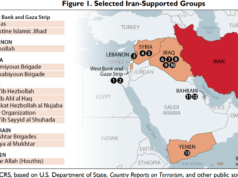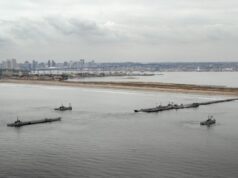The General wasn’t advocating war, nor was he predicting war.
Gen. Michael A. Minihan, USAF sent a memo to his troops, wanting them to speed up their preparations for potential combat with China. Although U.S. intelligence considers the possibility of war with China to be a decade away, Minihan raised warning signs that China’s timeline for taking over Taiwan may be shorter.
That’s what people who are expected to fight the next war are expected to do: to consider the factors that might lead a warlike country to take more aggressive military action and then to tell American forces to be prepared.
What did Gen. Minihan see as concerning?
He wrote that Chinese Communist Party chief Xi Jinping secured his third term (and set his war council) in October 2022. And that Taiwan and the United States both have presidential elections in 2024. The first could be considered a provocation by Beijing, as everything democratic is considered a provocation by the communist government. The second could be considered by Beijing to be a distraction for U.S. policymakers.
That makes 2025 a bet worth looking at.
Not a sure bet, and Minihan says, “I hope I’m wrong.” But certainly, his is a view worth considering, as his service includes duty in the Pacific that began in 2013 and ended as deputy commander of Indo-Pacific Command, with responsibility for China and Taiwan, until 2021.
There are other factors that could increase his concerns. The American Intelligence Community has said that China wants to be stronger before taking on Taiwan, hence the longer timeline. However, Xi is watching the U.S. in Ukraine, where Western military stores are being depleting and there are no clear plans for replenishment either in the U.S. or in NATO. On the other hand, American military decline is not inevitable, and a decade from now, U.S. forces may be on the upswing with newer equipment. Maybe, from Xi’s point of view, waiting until China is stronger is not a better bet than striking while the U.S. is weaker.
There are, in addition, economic and population concerns. China’s economy is facing long-term problems, including COVID, the collapse of the real estate market, and declining overseas investment in technology companies. Peak growth was 14.2 percent in 2007.
A population that is both aging and declining is a security concern as well as economic one. Other countries with declining populations, including Japan and South Korea, became wealthy before the declining numbers caught up with them. Their governments are prepared to support the aging cohort in the absence of a new wave of workers. China’s “one child” policy that began in the 1970s created a demographic disconnect — not only fewer people, but a preponderance of males over females — that has remained. In 2020, it was estimated that there were 30 million more men than women in China.
China analyst Dan Wang told the Epoch Times in an interview that China’s growth relies on import and export trade, which, while good during the first part of 2002, deteriorated significantly in the second half. The impact of the Chinese government’s massive investment in infrastructure construction was limited, and given the impact of a drastic COVID policy, domestic demand could not be boosted. “The consensus now is that the economy will continue to shrink in 2023. My view is, it’s going to be messy.”
Couple the economic difficulties with the lack of potential partners with the requirement that young people support their aging parents, and you have an unstable society. An unstable society could very well be a revolutionary society — Xi’s greatest fear.
Or, perhaps, it’s his second-greatest fear after what happens if his personal position weakens in the party. Yes, his formal term will run for the next nine and a half years, but really it will run only as long as he moves the country toward its stated goals.
If Xi thinks China will be weaker in a decade or he will be weaker in two years, and the U.S. might take its military resupply mission seriously in the next few years and become stronger, he might jump sooner rather than later.
Gen. Minihan is the head of the Air Force’s Air Mobility Command, overseeing the service’s transport and refueling aircraft for missions around the world, including during wartime. He is precisely the person who should be considering what could happen — and how the USAF could respond — if the intelligence estimates are wrong.
That is not predicting war or advocating war; it is preparing for war.






